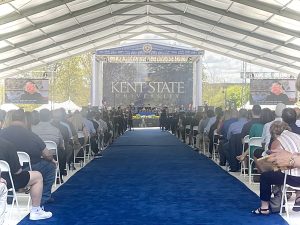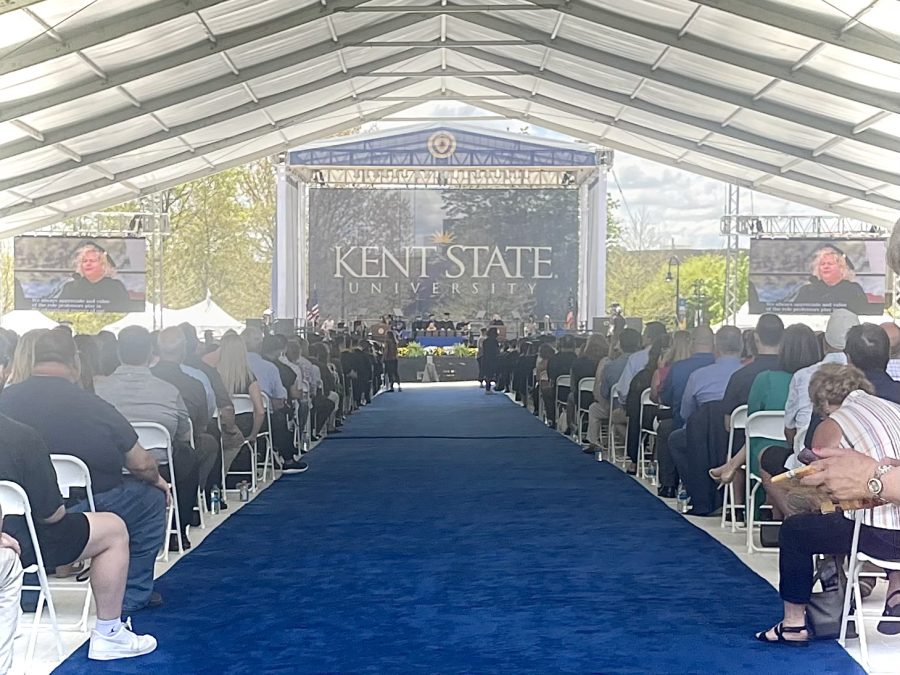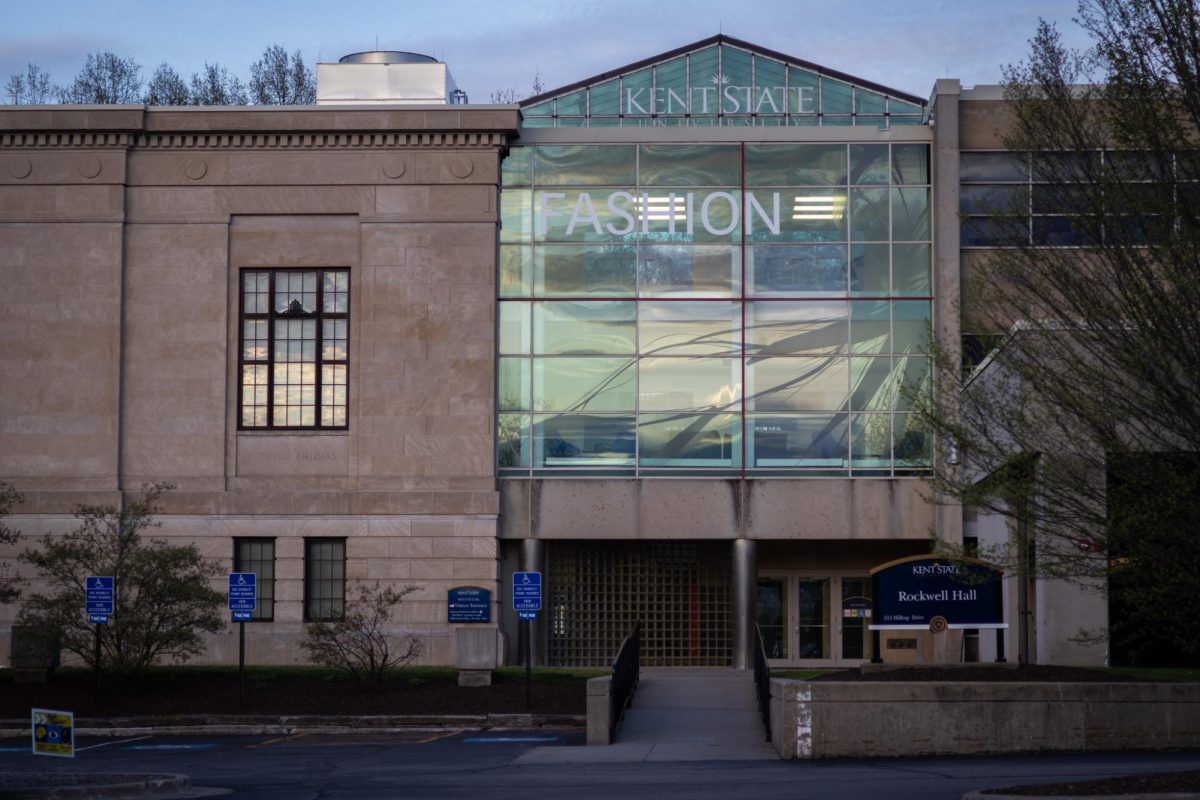Thirty years ago, conservatives, politicians and ministers objected to a course proposed about gay and lesbian issues that would focus on a social science point-of-view on gay and lesbian issues, such as history, psychology and social psychology.
A professor proposed the course at Kent State in 1993.
Robert Johnson proposed “The Sociology of Gays and Lesbians” with Beth Rushing as a colleague, who wanted to co-teach.
At the time, both Johnson and Rushing said they believed it was time for a course like this at the university. They decided to teach the course together.
“It really did feel like it was meeting a need, like an intellectual need and maybe also a social support need for communities on campus,” Rushing said. “So it was a really fun thing to do.”
The professors approached the course from slightly different points of view, from Rushing’s focus on women and gender studies to Johnson’s social psychological point of view, she said.
“I think we made a really great team because we brought those different skill sets to the course, and rounded each other out in a way,” she said.
The class went through the regular curriculum approval process to add it as a 3-credit hour sociology major course for the fall semester of 1994. During the process, the College Republicans wanted to meet at faculty meetings to object to the course, Johnson said. At the same time, state legislators wrote to Carol Cartwright trying to get the course disapproved and even threatened university funding.
“I don’t think it would be beneficial,” said Rev. Ronald Lanham, Pastor of the New Testament Baptist Church in Ravenna. “The class would teach it (homosexuality) as acceptable. Teaching a course about it would only cause more problems. I’m just concerned about where our country’s going.”
Although the course received backlash, it also gained support. All of Johnson’s colleagues in the sociology department supported it and reporters were supportive, he said. Rushing knew she had her department’s support as well, she said. Students also supported it.
“In the university community it was unanimous,” Johnson said. “I never encountered a colleague or an administrator that had anything negative to say about the course. In fact, when I was approved, many came up and celebrated the approval with me.”
Although the class was an upper-division course, it had many students. The first class held 75 students and didn’t leave any empty seats.
“For an upper division sociology class, usually, you might get 35, 40 students in one of those classes,” Johnson said. “All of the publicity didn’t drive anyone away, it attracted people to the course.”
The Chronicle of Higher Education, a popular journal covering universities and many other news outlets, contacted the university about the course. It gained media attention nationwide.
While many students were excited about the course, they also felt fearful, Rushing said. Some students felt they needed to hide their books when they went to class. Still, the professors made the students feel comfortable and attended to their needs.
“It just felt like the right thing to do and something that students learned from regardless of what their own identities were,” she said. “And we had a range of perspectives in there. It was a supportive learning environment.”
At the time, gay and lesbian people were still being abandoned and punished for who they were. The course benefited students. Due to Rushing teaching topics like this, many students came out to her at Kent State and other places, she said.
“A lot of things were changing but maybe not enough, and so having a place to have a rigorous conversation about an understanding about gay and lesbian issues was something that students wanted, and we wanted to provide at the time,” she said.
Johnson still teaches a similar course at the University of Miami, where he moved in 2004. The course changed its name from “The Sociology of Gays and Lesbians” to “LGBTQ Communities.” Rushing is now the president at The Appalachian College Association.
“The name has become more inclusive through the trends in identifying the other sexual minorities within the representatives of the community itself,” Johnson said.
Since 1993, gay rights have progressed through movements and the legalization of gay marriage in all 50 states in 2015. Although with this progression, conservatives are starting to target universities for sexual identity courses in school. The Guardian, a news site, reports more than 100 bills censoring teachers have been introduced in state legislatures this year, according to a report by PEN America, a non-profit working to protect freedom of expression in the US.
“The current climate for gay and lesbian rights in the US broadly are in many respects better, with greater public opinion support on many key issues,” Johnson said. “Politically speaking and when focused on some members of the broader LGBTQ+ community, there has been a targeted backlash against transgender rights and gender transforming norms.”
However, the University of Miami is a private institution, which is not affected by the bills Florida is trying to set in place.
Johnson believed all the attention the course received created a learning environment that modeled the way other universities could strive to be.
“We followed the regular academic procedures, and I think they work well,” Johnson said. “In fact, even in the face of threats from a conservative legislature at the time, the university came out of it unscathed. I think we were recognized as sort of a beacon of academic freedom for having done that in the circles of people who were aware of what was happening.”
Josie Burkhart is a reporter. Contact her at [email protected].



















